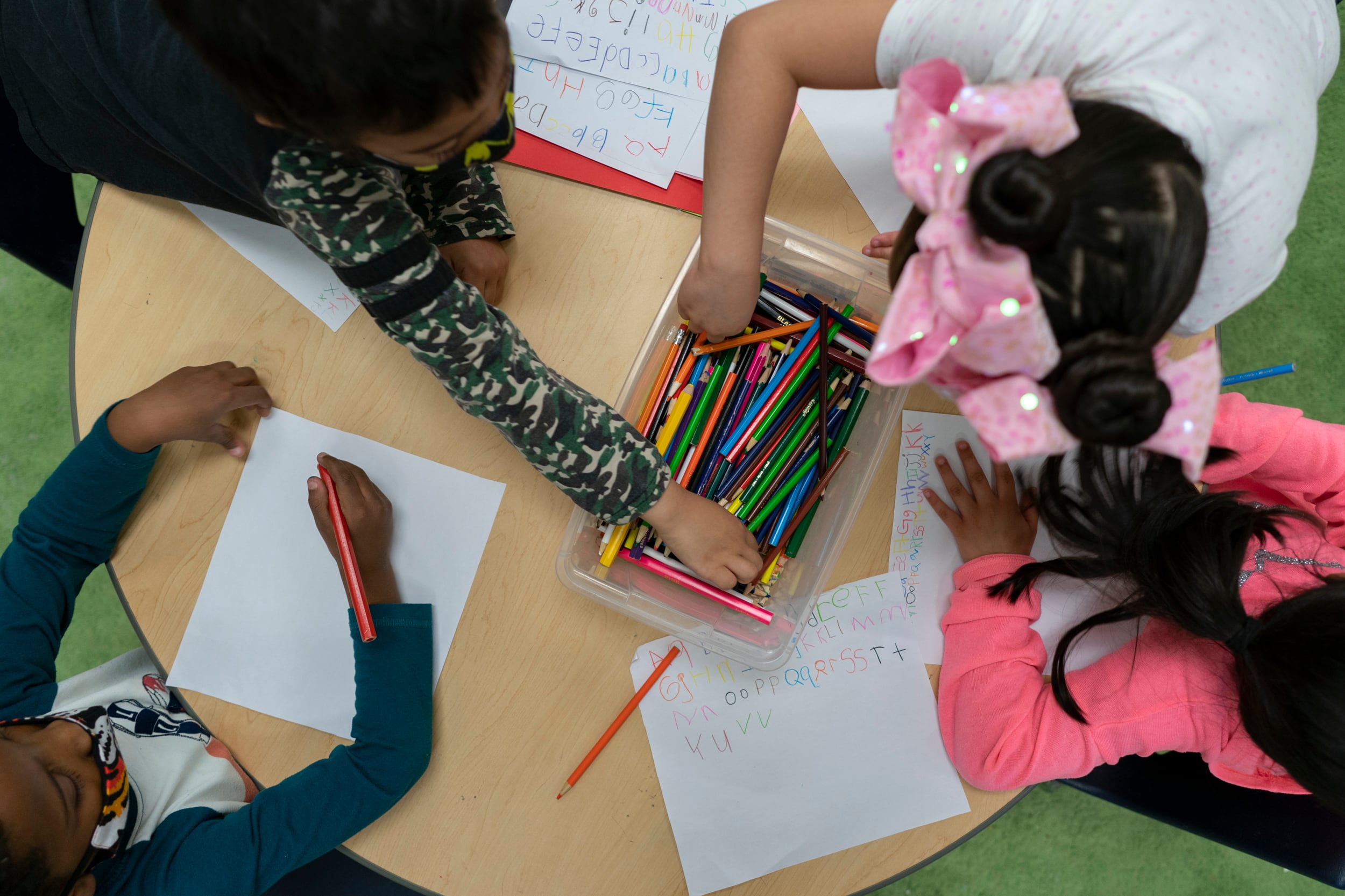Gov. J.B. Pritzker promised in 2019 to bring universal preschool to all Illinois children after being elected. Then the COVID-19 pandemic hit. Today, he’s picking up where he left off with a budget proposal that adds $250 million to early childhood programs.
“I would have done it in year one if the dollars had been available to do it,” Pritzker said Tuesday in a briefing with reporters. He said enhancing early childhood care and education is a “win-win” that will remobilize the workforce and boost the state’s economy “now and in the decades ahead.”
Pritzker is proposing a four-year plan he’s calling Smart Start Illinois that will create 20,000 additional seats for 3- and 4-year-olds in preschool programs. Just over 76,000 students are currently enrolled in pre-K in Illinois public schools.
Pritzker is seeking a $75 million increase to the Illinois State Board of Education’s Early Childhood Block Grant to create 5,000 new preschool spots for children this coming school year. The Illinois Department of Human Services will receive a $40 million increase for early intervention programs that support children with disabilities under the age of 3, $5 million more for the home visiting program, and $70 million more for the Child Care Assistance Program — which didn’t see an increase in the state’s 2023 budget. That department will also receive $20 million to upgrade its payment system for providers.
Smart Start Illinois includes two entirely new initiatives. The first — a $130 million effort called the Childcare Workforce Compensation Contracts — is aimed at increasing the salaries of child care workers and bringing more educators into the field. The other is a $100 million Early Childhood Construction Grant Program to help child care providers improve building and facilities that they use.
After being re-elected in November, Pritzker said he wanted to make Illinois the number one state for child care access during his second term in office. With the spring legislation session in full swing in Springfield, Pritzker has signaled that early childhood education and child care access for families is his top priority.
Early childhood education advocates are pushing the state to increase funding for early education and child care by 20% — or $120 million — to help increase compensation for workers, who are predominantly women or color, and to address access gaps around the state. The State Board of Education proposed a 10% — or $60 million — increase for the early childhood education block grant in January during a monthly board meeting. Pritzker’s plan would fall in between the two figures.
While some have forecast that a recession or economic downturn will hit the nation’s economy this year, Pritzker said the state’s finances are in a better position to make a larger investment in early childhood education.
The proposed expansion comes amid declining birth rates and after a decrease in enrollment for early learners in preschool and kindergarten in the state. Many parents couldn’t keep their children home because they had to work or didn’t see the need for remote preschool.
Illinois law doesn’t require parents to start sending their children to school until they’re 6 years old, which allows families to keep children at home until they enter first grade.
Pritzker said the state will continue to work with private providers and school districts to create additional seats in preschools and help them market their services. The state also has a bilingual public campaign to attract families with young children.
On Wednesday afternoon, Pritzker will give a budget address and State of the State speech that will highlight his entire budget proposal, including what he wants to spend on K-12 and higher education.
The general assembly must approve a final budget for 2024 by the end of the legislative session later in May.
Correction Feb. 15. 2023: This story has been updated to correct one instance where Smart Start Illinois was referred to as Start Smart Illinois.
Samantha Smylie is the state education reporter for Chalkbeat Chicago, covering school districts across the state, legislation, special education, and the state board of education. Contact Samantha at ssmylie@chalkbeat.org.







